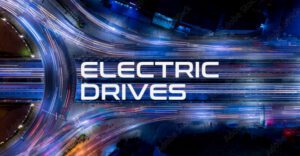It was announced recently that UK inflation had hit its highest rate in 40 years. Part of this is the rising cost of energy, with many household electricity bills rising by £700-a-year. A recent study by Smart Home Charge revealed that 46 percent of electric vehicle (EV) owners are not utilising cheaper, off-peak charging, to help keep bills down.
Smart Home Charge says that now is the time to educate about how and why to use or swap to smart charging at home. They say that many electric vehicle drivers could take advantage by using cheaper off-peak charging times by simply installing a smart charging point at home.
To support this, Smart Home Charge has calculated that, using EDF’s GoElectric 35 tariff, charging a Nissan LEAFon the peak day rate of 45p per kWh will cost around £18 for a single charge. This compares to just £1.80 when using the off-peak rate of 4.5p per kWh (between the hours of midnight and 5am).
Across 10,000 miles (16,093km) in one year, peak rate only charging would cost £1,071 versus £107 when using off-peak only charging. This is a massive saving of £964. It also illustrates just how much it saves in the annual running costs of an electric car compared to a combustion engine vehicle.
Smart charge points are proven to provide drivers with more control over their home charging setup. They allow users to set up scheduled charging to coincide with cheaper electricity rates. Plus, they provide information on charging history so drivers can monitor their electric vehicle home charging costs.

Fortunately, the UK Government will require all electric vehicle chargers sold after 30th June 2022 to have smart functionality. That said, the poll also revealed those new to electric vehicles need help with what smart charging is and how to make the most of it to reap the cost savings.
Danny Morgan, Smart Home Charge Editor and Marketing Manager, said “Educating new EV drivers is key to helping them save on their car charging costs. Traditionally, drivers have not had much choice when it comes to fuel costs other than searching for which petrol station has the lowest price – and even then the difference is pennies.
“However, EV drivers have much more control over the cost of their home EV charging, firstly by finding an energy supplier which offers an EV-friendly tariff with off-peak rates and secondly by making sure they set up a schedule on their smart home charge point that coincides with their off-peak window.
“While drivers cannot ultimately control wholesale electricity prices, they can make sure they are charging their cars on the lowest rate possible by using the Smart Home Charge EV energy tariff comparison tool.”



